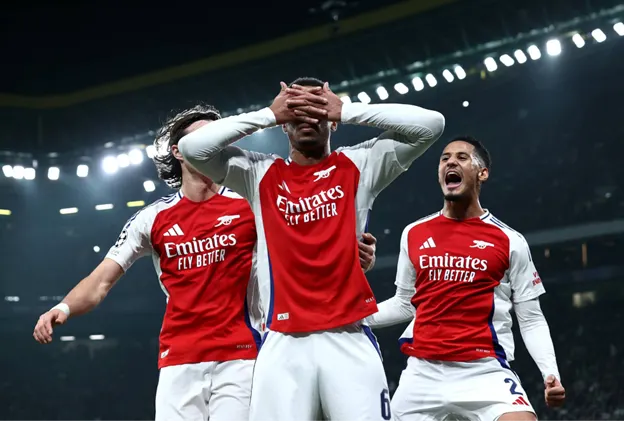There’s a particular feeling that settles over a football season when one team stops hoping and starts knowing. Arsenal, sitting four points clear at the Premier League summit in late October 2025, have crossed that threshold. This isn’t the naive optimism of years past or the fragile confidence that crumbled under pressure in previous title races. This is something fundamentally different; a team that has built an identity on defensive steel, squad depth, and collective resilience that finally feels sustainable.
The Gunners have conceded just three goals in nine league matches. They’ve ground out victories when the football hasn’t flowed. They’ve navigated injuries to key players without dropping points. And perhaps most tellingly, they’ve won ugly; something championship teams do but pretenders cannot.
The Defensive Revolution
Arsenal’s transformation begins at the back, where they’ve constructed the most miserly defence in Premier League history through nine games. Three goals conceded isn’t just impressive, it’s historically exceptional. Clean sheets against quality opposition have become routine rather than remarkable, and the recent victory over Crystal Palace exemplified this new identity perfectly.
That match was a contest of attrition rather than spectacle, decided by defensive solidity and a crucial set piece. While Liverpool, Chelsea, and Manchester City all faltered that same weekend, Arsenal did what champions do: they found a way to win when the performance wasn’t there. The Emirates crowd, according to analyst James McNicholas from The Athletic, is leaning into this identity for the first time in years, taking genuine pride in their team’s resilience and defensive posture.
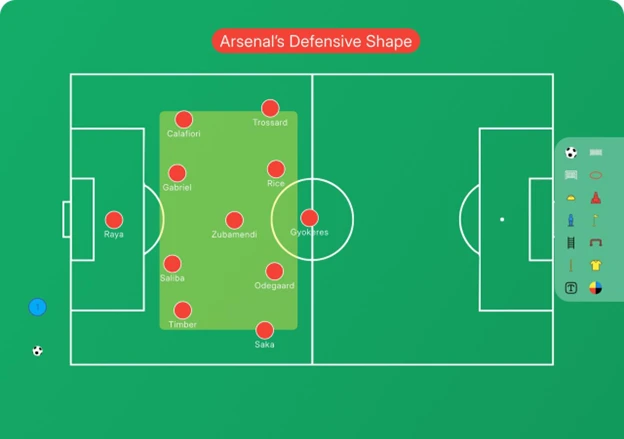
This isn’t just about individual brilliance, though William Saliba and Gabriel form perhaps the Premier League’s best centre-back partnership. It’s about collective commitment. When Saliba exited at halftime against Palace with an injury, 21-year-old Christian Mosquera stepped in seamlessly, maintaining the same style and stability. This “like-for-like” capability is new for Arsenal, a team that previously lacked high-calibre defensive alternatives.
The fullback positions tell a similar story. Miles Lewis-Skelly is being touted for England despite Riccardo Calafiori currently keeping him out of the side. Ben White, an established international, has at times played second fiddle to Jurriën Timber, who may be the league’s form fullback. This depth isn’t accidental; it’s the result of strategic recruitment and Mikel Arteta’s demanding standards.
Cultural Shift Under Arteta
Arsenal’s defensive resurgence reflects a cultural transformation championed relentlessly by their manager. The entire team, from Victor Gyökeres with his relentless pressing up front, through central midfielders Martin Zubimendi and Declan Rice, to the defence marshalled by Gabriel and Saliba, takes pride in their work without the ball.
Comparisons are being drawn to the George Graham era and the early Arsène Wenger years. For the first time in decades, Arsenal defends as a genuine collective, turning clean sheets into an integral part of the club’s DNA rather than occasional bonuses. As analyst Adrian Clarke noted: “If you’re not better, you’ll be out of the team.” The competition for places is fierce, and that internal pressure is elevating everyone’s performance.

The Gyökeres Conundrum
No title challenge is without complications, and Arsenal’s comes in the form of striker Victor Gyökeres. Five goals in 13 appearances sounds respectable until you realise he’s endured a five-game league drought that has added pressure, particularly as Premier League opponents defend deep and narrow against Arsenal, starving him of space and clear chances.
The explanations are multiple and interconnected. Opposition defensive setups specifically target Gyökeres with extra markers, which paradoxically creates more space for wingers Bukayo Saka and Gabriel Martinelli. There’s also self-imposed pressure and possible fatigue from lacking a proper preseason while playing heavy minutes as the sole fit-recognised centre-forward.
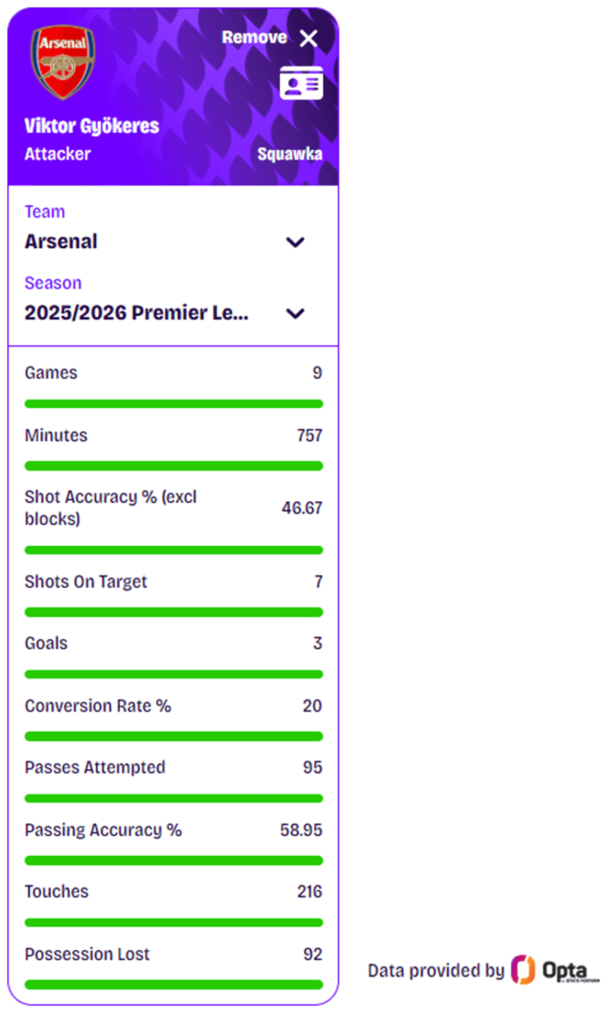
Crucially, the consensus among analysts is that his adaptation is ongoing. Many expect more explosiveness once he fully adjusts and other attackers return from injury. Kai Havertz’s absence has left Arsenal without viable rotation for the number nine role, but his imminent return will provide the flexibility to alternate physical forwards or even play them together, stressing opposition defences and allowing each to be more effective.
There’s even intriguing potential for Gabriel Martinelli to operate centrally in domestic cup fixtures, adding another tactical dimension to Arsenal’s attacking arsenal.
Squad Depth: The X-Factor
Arsenal’s growing squad depth distinguishes this campaign from heartbreaking near-misses of the past. Key spells without Havertz, Martin Odegaard, or Saka have been negotiated without loss of form, suggesting the Gunners can withstand fixture congestion and injuries far better than previous iterations of Arteta’s team.
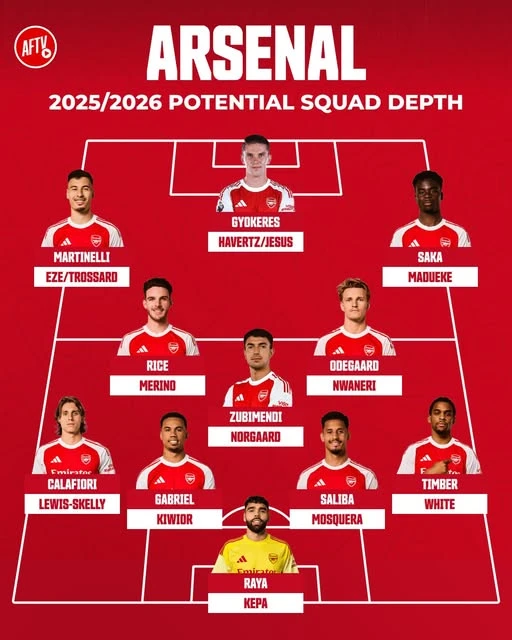
This depth isn’t just numerical, it’s qualitative. When first-choice players are unavailable, replacements don’t just fill gaps; they maintain standards. That’s the difference between contenders and champions, and it’s why Arsenal look equipped to sustain their challenge across multiple competitions.
The Rivals Are Vulnerable
Liverpool and Manchester City remain the biggest threats, but both have shown uncharacteristic vulnerability this season. Man City’s slow start, their worst points tally after nine games since the 2006-07 season, has left them scrambling for consistency. Liverpool’s four consecutive Premier League defeats exposed defensive frailties and squad depth issues that Arne Slot is still addressing.
Despite early-season wobbles and unusual table positions for surprise packages like Bournemouth and Sunderland, the experience and squad quality of City and Liverpool mean they cannot be discounted. Their ability to string together double-digit winning runs remains Arsenal’s primary concern. Yet Arsenal have already banked crucial points at Old Trafford, Anfield, and against City and Newcastle, results that will loom large come May.
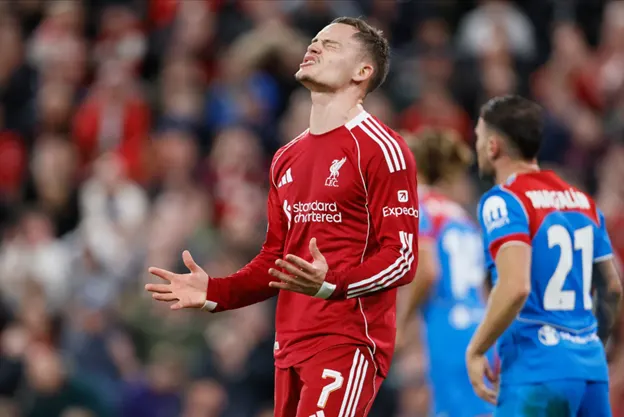
The fixture calendar presents challenges, including difficult away trips and derbies, but Arsenal’s defensive solidity provides the foundation to navigate these tests. Championship teams don’t necessarily blow opponents away every week- they simply refuse to lose, grinding out results when necessary.
Does Defence Really Win Titles?
Here’s where the analysis gets interesting. Statistically, only a minority of Premier League champions have finished with the fewest goals conceded without also scoring the most. Arsenal are on track to break defensive records, but goal-scoring remains paramount for title winners.
The difference this season? Arsenal have the potential to be both the best defence and best attack- the combination that truly does win championships. If Gyökeres finds his rhythm, if Havertz returns to share the striking burden, if Saka and Martinelli continue threatening defences from wide positions, Arsenal could dominate at both ends simultaneously.
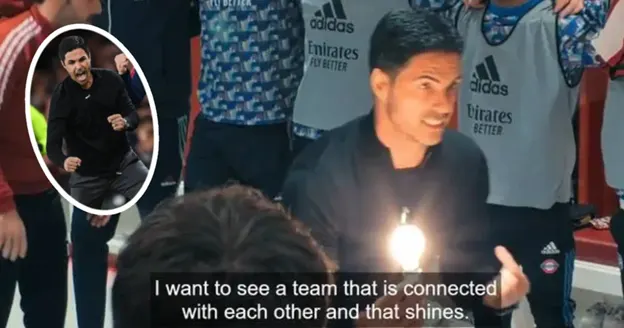
That balance, defensive resilience married to attacking potency, is what separates great teams from merely good ones. Arsenal are building toward it systematically.
Why This Time Is Different
Arsenal fans have heard title talk before. They’ve witnessed promising starts collapse under pressure. Recent history, including dramatic title races lost in the final weeks, means caution is understandable. Yet several factors suggest this season genuinely is different:
- Mental Resilience: Arsenal are winning ugly, grinding out results, showing the pragmatism champions require.
- Squad Depth: Injuries no longer derail campaigns; quality replacements maintain standards.
- Defensive Identity: Three goals conceded in nine matches isn’t luck, it’s systematic excellence.
- Rival Vulnerability: City and Liverpool are beatable, showing weaknesses Arsenal can exploit.
- Four-Point Cushion: Early-season points banked provide crucial breathing room.
- Fixture Results: Already securing points at traditionally difficult venues.
The psychological battle is only beginning, but Arsenal have shown they possess the mentality to navigate it. The Emirates crowd has embraced this gritty, resilient identity, creating an atmosphere that feeds the team’s determination.
The Verdict- Conclusion
Under Mikel Arteta, Arsenal’s 2025 title challenge is defined by defensive prowess, squad depth, and a collective identity that finally feels championship-calibre. Saliba, Gabriel, and a rotating cast of elite defenders are setting new standards. Gyökeres’ adaptation, Havertz’s imminent return, and the squad’s resilience point to a club now built to contend on multiple fronts. Liverpool and City remain formidable, but both are flawed. Arsenal, meanwhile, are constructing something special, a team capable of suffocating opponents defensively while possessing the attacking weapons to punish any lapse in concentration.
The coming months will test whether Arsenal can maintain this standard, whether Gyökeres can rediscover his scoring touch, and whether the squad depth holds under fixture congestion. But right now, in late October with a four-point lead and defensive statistics that defy belief, Arsenal look like champions-in-waiting.
This isn’t hope. This is evidence. Arsenal are going to win the Premier League, and anyone paying attention can see exactly why.

